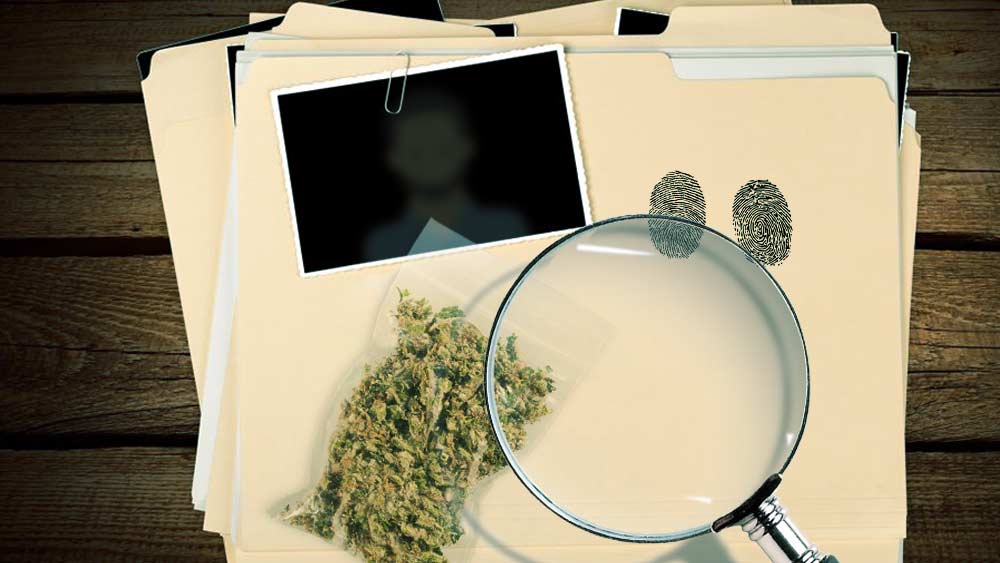In our culture, expungement is a social opportunity overshadowed by the talks of economic prosperity and health benefits. For Darryl, it is the only chance to get a leg up in life.
This March, Forbes compiled a list of authentic sources reporting that there were 663.367 cannabis-related arrests in 2018 alone, 92% of which were for simple possession. From 2001 to 2010, that number reached the staggering 8.2 million, 83% of which was for possessing small amounts of pot.
In terms of racial disparity, the stats are even worse: African-Americans are four times more likely to be arrested for possessing cannabis. Perhaps not surprisingly, the likelihood increases in “rich white” neighborhoods, reaching 15% in Manhattan.
And I’m not sure if anyone counted all those inmates serving time in jail for something that’s now not just legal, but “essential”. Needless to say, most of them aren’t white.
So, yes, the numbers are distressing. But if we twist our perspective for a moment, something funny will happen, but I won’t spoil it for you – you have to keep reading.
Here’s a story about Darryl and Ryan.
Darryl
They are both in their thirties, unaware of each other’s existence.
At the time we’re learning about them for the first time, Darryl is handing out his resume to “New Life Cannabis”, founded by Ryan.
Now, Darryl has swallowed a lot of pride to get to this interview, and he has a heart in his mouth. A quick glance at his resume revealed his address in an undesirable part of town. The manager had one question only:
– Do you have a criminal record?
– I was hit with a possession charge after being caught with a joint when I was 18 – Darryl replied, hoping that this man in front of him will recognize the irony.
– I’m sorry, but the law doesn’t allow “New Life Cannabis” to hire someone with a criminal record.
And that’s it. For the interview, and probably for Darryl’s chances to get a decent employment. It’s been about ten years now with him being stuck with crappy jobs. But who counts.
His family wanted more for him. They all worked long hours to ensure he didn’t end up like them. Darryl was a smart kid, who knew he had to work twice as hard to rise above his background. He didn’t want to smoke joints after school.
But it was the last day of school, the sun was shining, and Darryl was in a cheerful mood – “a single joint can’t do harm”, he thought. And before he knew it, the police caught him with a spliff in his hands.
The residents were complaining for a while now about the kids in the park, and they were not about to give Darryl a break. A simple warning was not an option, and he ended up with a possession charge.
Because of the criminal record, he lost the chance to apply for financial aid and go to college. Nobody would hire him.
Darryl still lives in a neighborhood he’d hoped to escape from. He never got to save money for his son’s education.
And so, the history repeats itself.
Ryan
Ryan lived in a typical middle-class family – he got a car for his 16th birthday, spent his summers in a family cottage, and bought take-out food because his parents were rarely in time for dinner.
He was also not that much into pot. But he soon realized that he could cash in on the take-out money by buying weed with it and selling it to friends. Healthy profit, young trailblazer.
He never worried about being caught. One night, though, he rolled through a stop sign and was pulled over by the cops. As luck would have it, the officer saw Ryan’s stash in the glove box while he was reaching for the insurance papers.
Ryan was busted and had to wait for his mom to pick him up. They were advised to call a family lawyer.
But that’s about it. He was a good kid, from a decent family, and was heading to a prestigious institution that fall. The police agreed to let him go, mom asked for a promise he would never sell pot again, and the earned money was put into a savings account.
Some years from then, Ryan graduated from university with high grades but broke his promise. The cannabis was about to be legalized, and he and his friends all agreed that it could be a lucrative opportunity. Using the money from his savings account, Ryan co-founded “New Life Cannabis”.
It was not long before Ryan became a “cannabillionaire”. The weed was flying off the shelves.
Expungement Advocacy and Saving Lives
There are many organizations raising their voices about the injustice done to people like Darryl.
Apparently, Darryl has many names now: Lorenze “Baby Face”, Mauro Melgar, Unique Handerson – just to mention some.
Darryl is actually neither of them, and all of them at the same time. He’s a “composite”, a special fictional character made of numerous true stories. So is Ryan.
They were made by Dr. Akwasi Owusu-Bempah, an assistant professor in the Department of Sociology at the University of Toronto, and Director of Research for the Campaign for Cannabis Amnesty.
From our story’s perspective, it’s more important to highlight that prof. Owusu-Bempah is a scientist who gives a great deal of a damn.
In his TedTalk, he spoke not only about expungement and amnesty but about individual human beings going through a scary maze that is the U.S. criminal justice system.
If I had only one sentence to describe the talk’s takeaway, it would not refer to the injustices and racial disparities, but to the fact that expungement can help raise so many people from the existential mud they’re in because of their criminal record. It all translates to saving lives.
Expungement in 2019 – Did Anything Change for Darryl?
Given the fact that a lot of jurisdictions have, in some form, recognized the need for restorative justice, but estimates show that some 60% of applicants never finish filling their paperwork, the real question is – how is anything different now?
The law might allow record clearing, but in practice it all comes down to multiple layers of bureaucracy, paperwork, and court fees.
“So, have things changed? Yes, but the level of success varies from place to place. For example, Illinois has done the best job recently in their legislation of actually creating special categories of licenses, and other related initiatives to bring people exactly like Darryl into the cannabis industry,” said prof. Owusu-Bempah to Greencamp.
Unlike other jurisdictions, Illinois framed its cannabis laws by including the need for equity right from the start.
However, we have to be careful not to draw optimistic conclusions too soon.
“There’s always a difference between what’s written into law and what actually happens in practice. The Illinois legislation is very positive and hopefully it avoids some of the downfalls of other jurisdictions. But we’ll have to wait and see. It’s too soon to be able to judge whether or not they’ve done a fantastic job,” noted Owusu-Bempah.
The same goes for the presumption that legalization is a silver bullet. Even though the number of arrests is down, the racial disparity rates remain the same, if not go up.
“We have to wait some more time to pass to have enough data for a meaningful analysis. We have yet to revisit the racial aspect of statistics on arrests.”
Racially Biased Policing
Going back to our story on Darryl and Ryan, would it have a less bitter end if the police acted in a different manner? If the enforcement of our drug laws was racially unbiased?
“First of all, the stereotypes that underpin racial profiling aren’t limited to the police. These are stereotypes and biases that exist in our society more generally. And so we can’t assume that the police are just going to stop racially profiling people when our society at large operates in a similar manner,” Owusu-Bempah explained.
“Second,” he added, “the collection of transparent data helps to hold police accountable for their actions. And ultimately, we need serious policy shifts. If our previous model didn’t eliminate drugs from our society, then we need to rethink what our drug laws are for, and if there are better ways of dealing with people’s problematic drug use. In a word, some of the racial bias and the policing of drugs can be removed if we stop policing drugs in the way that we do.”
Lack of Political Will
We’ve already mentioned Illinois as a bright example. Another one would be some California counties that use “Clear my record” technology to automate the record clearing (San Francisco alone expunged over 9.000 convictions dating back to 1975).
So why is expungement so difficult to put into practice when we see how easy it can be?
Professor Owusu-Bempah was clear about that.
“It all depends on the jurisdiction. And on the will of people to do so. In Canada, for example, the main reason is the fact that the enforcement data and our criminal record data is kept by different levels of government and then in different databases. So there’s no one national repository of data that can be accessed in, and the data be removed from.”
Ultimately, however, what’s needed is the public and political will to do so.
“I don’t think that it’s overly difficult. I just think that, in many cases, there’s a lack of genuine desire to do so.”
What’s worse, the political will won’t just shape itself. We need advocacy, socially responsible corporations, non-profits, and a lot of stories published on Darryls – to create a social environment that pressures governments to help millions of people.
Now that the industry itself is nosediving, the chances are that the entire advocacy machinery, supported by the private sector, will lose its edge.
Pardon, Expungement, or Something More?
Without the intention to downplay the political steps in the right direction, it should be noted that pardons are simply not enough. When you see the lives of all the Darryls, it starts to get clear that even expungement must be just the beginning.
The first thing Darryl should know is that there’s a whole lot of difference between expungement and a pardon.
“Expungement is a complete erasure of the records. Practically, it means that the records are completely cleared from the government databases. A pardon indicates that the record still exists, it was just forgiven at the moment. And importantly, under certain circumstances, it can be reversed,” explains Owusu-Bempah.
“If the individual commits another crime or if another government were to come in and think that the pardon should not have been granted, then the process can be reversed. So it’s not forever. I think it’s an important distinction.”
But walk in Darryl shoes for a second. It would mean a lot if his record was expunged.
But he has kids of his own now. He’s too old to apply for financial aid and benefit from education, which was the biggest shot he had. His life can’t be reversed.
The amnesty must be followed by its funding envelope, especially when you realize that a criminal record can be a burden for many generations and wider communities.
“When an individual has a criminal record, they have a more difficult time completing their education or getting a good job, and this subsequently affects their family and the prospects of their children. So it’s intergenerational. We need mechanisms to repair that could go beyond simply clearing the criminal records,” professor Owusu-Bempah said.
“I think tax revenue redistribution is a big part of the solution. What’s needed is literally a redistribution of cannabis wealth. Most of the funding mechanisms include trying to find ways to incorporate these people that have been harmed into the opportunities that are provided by cannabis, either through participating in the industry or redistributing some of the sales revenue back to their communities,” he explained.
Is the Cannabis Industry Obliged to Acknowledge the Problem?
The other part of the expungement story concerns our Ryan. It’s not an issue whether he made a lot of money, but does he have the luxury of ignoring the victims of the “War on Drugs”? Or are they really none of his business?
And it’s not just about Ryan. Not even about the entire industry.
“Think about all the people who made lots and lots of money, dealing with the financing for the cannabis companies. Investment banks made millions and millions of dollars, and they have little or no connection to the devastation caused by the “War on Drugs”, Owusu-Bempah argued.
“They might have been cannabis users, like Ryan, for example. But they weren’t the people that were actually being harmed by the enforcement of these laws. Some of them, out of genuine ignorance, don’t recognize and acknowledge the full extent of the devastation that was caused. But I think many probably don’t really care,” he concluded.





